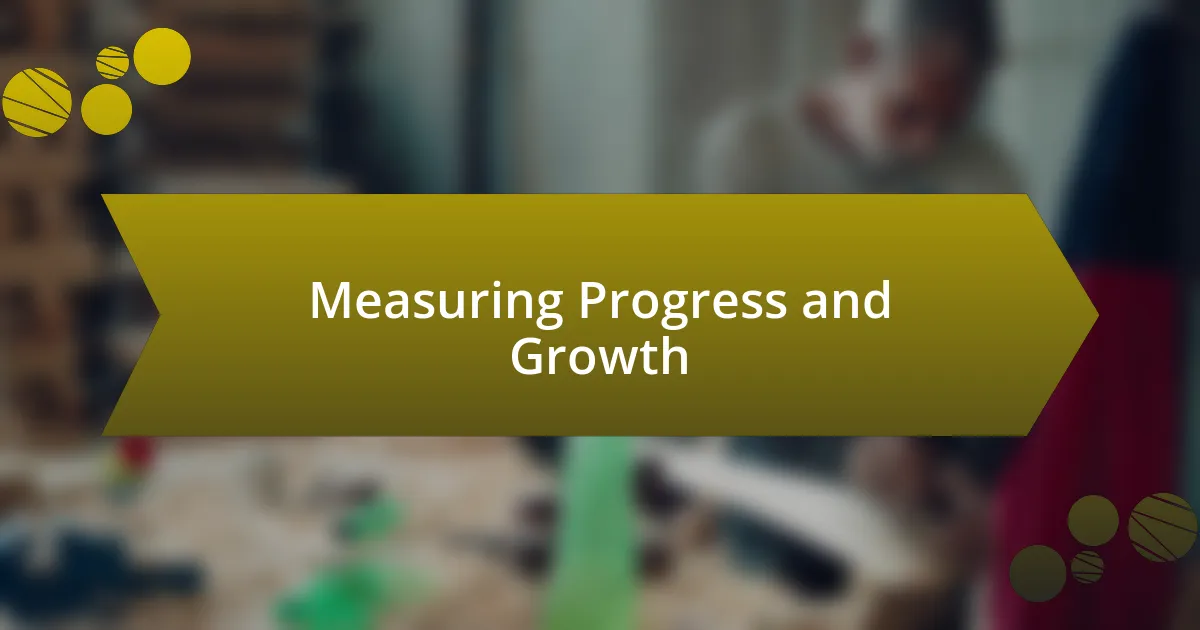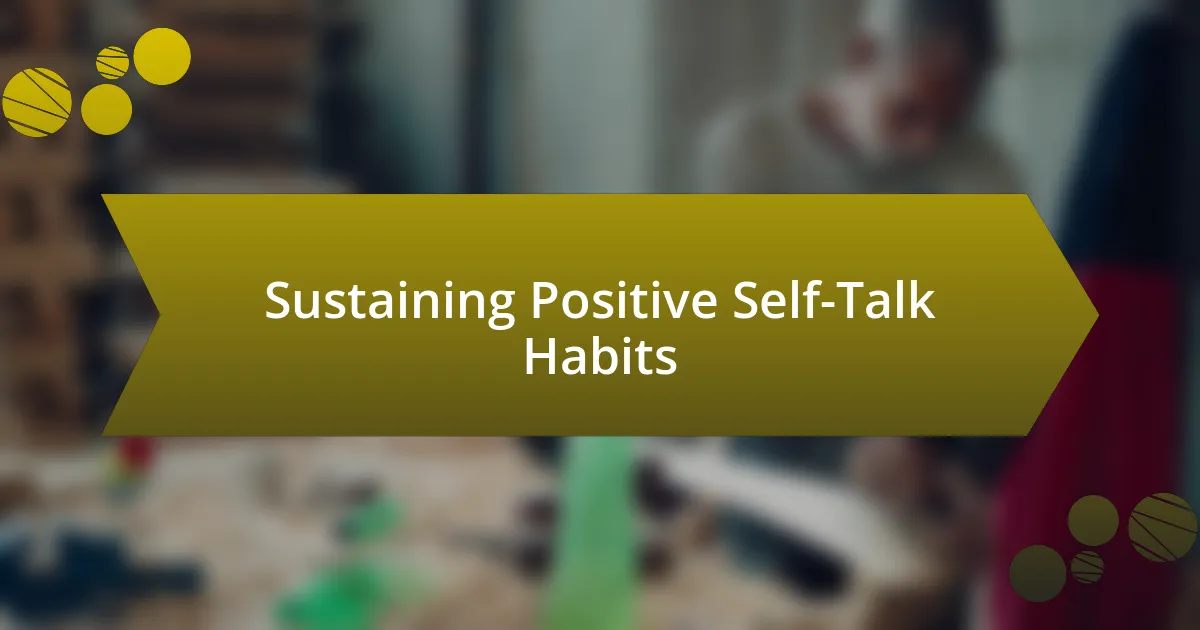Key takeaways:
- Positive self-talk boosts confidence, emotional well-being, and guides decision-making during challenges.
- Identifying negative self-talk patterns, such as all-or-nothing thinking and personalizing failures, is crucial for fostering constructive dialogue.
- Techniques like perspective shifting, challenging negative thoughts with evidence, and gratitude journaling effectively enhance positive self-talk.
- Maintaining positive self-talk habits involves daily practices, accountability, and regular reflection on affirmations and progress.

Understanding Self-Talk Benefits
One of the most significant benefits of positive self-talk is its ability to boost confidence. I remember a time when I faced a challenging presentation at work. Instead of succumbing to doubt, I consciously decided to tell myself, “I am capable, and I will succeed.” That shift in mindset made all the difference; I walked into that meeting feeling empowered and prepared.
Another aspect to consider is how self-talk influences our emotional well-being. When I practice positive affirmations, I notice a profound change in my overall mood. Have you ever experienced a day when negative thoughts seem to cloud your vision? By simply reframing those thoughts, I find that I’m more resilient in the face of stress and uncertainty, which enhances my mental clarity.
Lastly, self-talk serves as a guiding compass for my actions and decisions. When I faced a personal setback, I would remind myself, “This is just a chapter, not the whole story.” This perspective helped me navigate difficult times, ultimately leading to growth and new opportunities. How do you talk to yourself when challenges arise? It’s fascinating how these internal dialogues can pave the way for our future outcomes.

Identifying Negative Self-Talk Patterns
Negative self-talk can be sneaky and often manifests in subtle ways. I found myself trapped in a cycle of self-criticism the first time I received feedback at work. Rather than viewing it as an opportunity for growth, my internal dialogue spiraled into a harsh narrative: “I’m just not good enough.” Recognizing this pattern was crucial; I learned that awareness is the first step to change.
Here are some common negative self-talk patterns to watch for:
– All-or-Nothing Thinking: Viewing situations in black-or-white terms, like thinking you’ve failed if you didn’t achieve perfection.
– Overgeneralization: Making broad conclusions based on a single event, such as assuming you’ll always fail because of one setback.
– Filtering: Focusing solely on the negative aspects of a situation while ignoring the positives, like zeroing in on one piece of critical feedback while disregarding praise.
– Personalization: Taking undue responsibility for problems, believing that your actions are the reason things go wrong, even if they are outside your control.
– Labeling: Assigning negative labels to yourself based on mistakes, such as calling yourself “a loser” instead of simply recognizing you made a mistake.
Identifying these patterns can be a powerful revelation, opening the door to more constructive self-dialogue.

Techniques for Positive Reframing
When it comes to positive reframing, one effective technique I’ve found helpful is perspective shifting. I vividly remember a time when I faced a major setback at work that felt devastating. Instead of wallowing in disappointment, I consciously chose to view it as a stepping stone for learning. That simple shift in perspective changed how I felt and responded to challenges, making me more resilient in the long run.
Another useful strategy is to challenge negative thoughts with evidence. For instance, I often catch myself thinking I can’t handle new responsibilities. During such moments, I take a step back and remind myself of past challenges I’ve successfully navigated. By focusing on my track record of success, I effectively neutralize the negativity and build my confidence. This practice not only reframes my thinking but also empowers me to tackle new situations with a clearer mind.
A practice I find particularly powerful is gratitude journaling. Each evening, I jot down three things I’m thankful for, even on tough days. For example, after a stressful day, reflecting on small joys, like a warm cup of tea or a supportive text from a friend, cultivates a positive mindset that counters negative thoughts. By intentionally recognizing the good, I’m able to create a habit of positivity that enhances my self-talk over time.
| Technique | Description |
|---|---|
| Perspective Shifting | Changing how you view a situation to see it as a learning opportunity. |
| Challenging Negative Thoughts | Countering negative self-talk with evidence of past successes. |
| Gratitude Journaling | Writing down things you are thankful for to boost positivity. |

Daily Practices for Self-Talk
One daily practice that has truly transformed my self-talk is the use of affirmations. I typically start each morning by reciting positive phrases like “I am capable and worthy of success.” At first, I felt a bit silly, but as I continued, these affirmations began to sink into my subconscious, replacing self-doubt with determination. Isn’t it fascinating how a few simple words can reshape our mindset?
Another practice I’ve found beneficial is mindfulness meditation. Setting aside just ten minutes a day to focus on my breath has helped me become more aware of my inner dialogue. During these moments of stillness, I often notice intrusive negative thoughts surfacing, and it’s empowering to observe them without judgment. I challenge myself to let them pass, which gradually shifts my perspective. Have you ever caught yourself getting overly critical? I’ve been there, and mindfulness has certainly helped me cultivate a kinder inner voice.
Engaging in self-reflection is also an essential part of my routine. At the end of each day, I spend a few minutes writing about the moments that triggered negative thoughts and how I responded to them. By analyzing my reactions, I gain insights into my patterns of thinking and can address them more constructively in the future. I’ve started to ask myself: why do I let small setbacks define my day? This practice not only improves my self-talk but also fosters personal growth by holding myself accountable for my attitudes.

Building Affirmations for Improvement
Creating affirmations that resonate with me has been a game changer. I remember when I first crafted my set of affirmations, I tailored them to my unique struggles: “I grow stronger every day” and “I embrace my own journey.” Sitting in front of the mirror, I often felt a rush of conviction as I repeated these phrases. Have you ever felt a disconnect between what you say and what you believe? I certainly did at first, but with practice, the gap slowly closed, bringing a sense of comfort and assurance.
To build effective affirmations, I learned that specificity matters. Instead of broad statements, I focused on particular areas I wanted to improve, like my confidence in social situations or my professional skills. For example, I’d say, “I contribute valuable ideas in meetings.” This shift not only made my affirmations feel genuine but also turned them into specific targets for growth. It’s almost like setting a mini-goal each day—don’t you feel more empowered when you have clear objectives?
I also discovered that repeating affirmations throughout the day enhances their impact. I often jot them down on sticky notes and place them on my desk or bathroom mirror. One day, I caught myself glancing at one that read, “I am resilient,” right before an important meeting. It sparked a sense of readiness within me that I hadn’t anticipated. Can you imagine how powerful a simple phrase can be in a moment of need? That’s the beauty of affirmations; they can serve as your personal cheerleader when you need it the most.

Measuring Progress and Growth
Keeping track of my progress was essential on this journey. I started by journaling my thoughts and feelings regularly, noting moments when I felt a shift in my mindset. While reflecting on my entries, I often found days where my self-talk was notably more positive, leading to increased confidence in various aspects of my life. Have you ever taken a moment to look back and see how far you’ve come? It can be incredibly validating.
One of the most profound ways I measured growth was through my reactions to challenges. Initially, I would approach difficult situations with a heightened sense of anxiety. However, as my positive self-talk developed, I began to recognize a change in my response. Instead of self-doubt, I started telling myself, “I’ve got this!” in those critical moments. This transformation was not just a sign of improvement; it was a clear marker of how my mindset evolved over time.
I also set aside time to revisit my affirmations and evaluate their effectiveness. Each month, I would check in with myself: Were these statements still resonating, or did they need a refresh? This adaptability became a crucial part of my growth. Just like with any skill, fine-tuning what we say to ourselves can enhance our ability to thrive. Have you ever adjusted your approach based on previous experiences? It’s this willingness to adapt that often paves the way for remarkable progress.

Sustaining Positive Self-Talk Habits
Developing positive self-talk habits doesn’t stop with initial progress; it’s about maintaining that momentum. I found that creating daily rituals around self-talk made a significant difference for me. For example, every morning, I would recite affirmations in front of the mirror. It felt a bit strange at first, but over time, it became a comforting routine. What about you? Have you ever noticed how much a consistent practice can shift your mindset?
One of the techniques that really helped me sustain these habits was visualization. I would imagine myself succeeding in various scenarios, reinforcing the positive messages I was telling myself. During tough times, this practice reminded me that obstacles were opportunities for growth. When’s the last time you visualized yourself overcoming a challenge? It’s a powerful tool that keeps positive self-talk alive and thriving.
Another aspect I embraced was accountability. Sharing my self-talk journey with a close friend provided me with support and encouragement. We’d regularly discuss our affirmations and hold each other accountable for maintaining our positive mindsets. Knowing that someone was in it with me kept my motivation high. Have you thought about finding an accountability partner on your journey? It can make all the difference in sustaining those positive habits.













